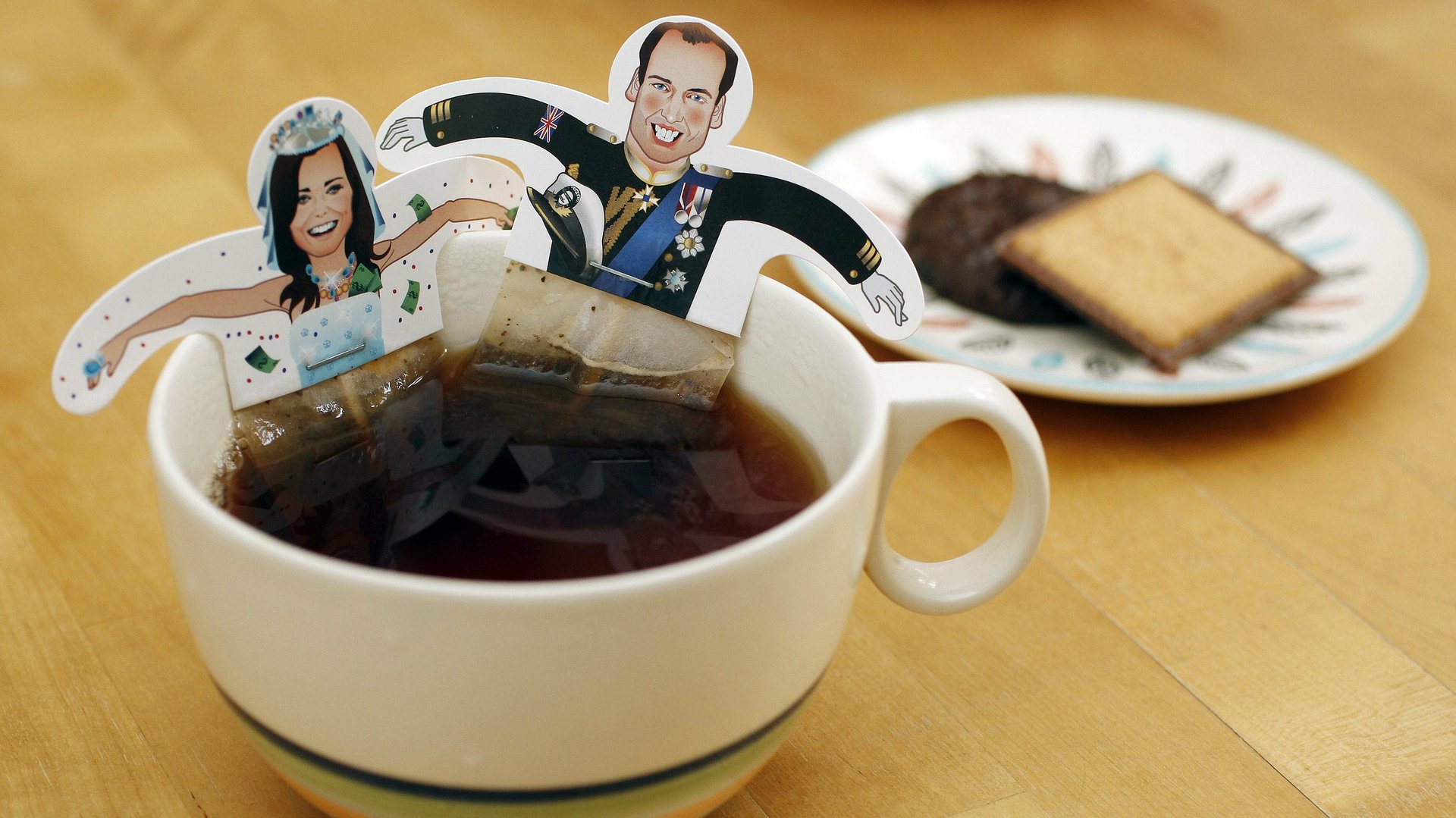Britain’s tea habit has a plastic problem
There are few things less controversial in Britain than a cup of tea, or a “cuppa” as it’s affectionately known.


There are few things less controversial in Britain than a cup of tea, or a “cuppa” as it’s affectionately known.
Of the 60.2 billion cups Britons sip each year, 96% are brewed using tea bags, in a market that’s largely dominated by three brands: PG Tips, Tetley, and Yorkshire Tea.
But recently, it came to the attention of Britons that a majority of these seemingly innocuous tea bags contain plastic. This means that depositing those steaming parcels into the compost or rubbish bin isn’t quite the innocent activity that many Britons thought it was.
The plastic contained in tea bags is polypropylene, a sealant which helps the bag retain its shape in boiling water. According to reporting from The Times of London (paywall), Unilever (which owns PG Tips), Yorkshire Tea, Tetley, as well as some bags from the higher-end brand Twinings all use some amount of single use plastic in their tea bags. The Guardian reported that one major retailer, supermarket chain the Co-op, is developing its own range of bags that with a non-plastic seal.
For weathered environmental campaigners, that plastic would find its way into something as seemingly natural as a tea bag will likely not come as a surprise (it is, after all, in everything from cosmetics to clothes to living systems). But for the UK’s devoted tea drinkers, it has. The news has been widely reported across both conservative and left-leaning newspapers since Christmas, and a petition started by Mike Armitage—a North Wales-based gardener and campaigner who runs the online magazine Nature Matters—has amassed more than 230,000 signatures.
Armitage started the petition in July, after noticing a “residual fluff” in his garden compost and wondering what could be causing it. At first, he says, the petition was “a slow burn.” That lasted until mid-December when The Sunday Times published an article (paywall) about his efforts. Around that same time he says, the final episode of Sir David Attenborough’s Blue Planet II—which became Britain’s most watched show of 2017—shone a light on the sheer magnitude of plastic polluting our oceans. Taken all together, he says, it hit a nerve.
“It was all a bit of a coincidence everything conspired at once,” Armitage said. “It caused a huge offense because most people just did not realize you could put plastic in a tea bag. It has taken them by surprise—many people were very indignant about it.”
Indeed, it’s hard not to notice that aversion to plastic has moved from niche environmentalist concern to the national agenda in Britain recently. Prime Minister Theresa May has vowed to get rid of all “avoidable” plastic waste in the UK by 2042 (though some critics were hardly impressed by the plan’s specifics). Meanwhile, there is momentum around the idea of a “latte levy” which would impose a £0.25 tax on hot drinks sold in a disposable cup. Just last week, the BBC announced plans to be single use plastic-free by 2020.
Armitage—who has since been on a slew of major UK TV and radio networks talking about his campaign—thinks there’s something about tea bags containing plastic that has proved particularly offensive to people. To learn that the beloved daily habit of plunging a tea bag into boiling water is secretly having a negative impact on the environment is different than, say, the more obvious choice to choose a single use plastic water bottle over a refillable glass. While major manufacturers have said the tea bags can still be composted despite the plastic—and many UK councils encourage citizens to deposit their teabags in food waste bins, the contents of which are industrially processed—it’s long been a complaint of gardeners that the bags don’t fully break down.
“So many people drink tea and they drink cups of it a day, and a lot people do get their tea by way of a tea bag,” Armitage said. “Loose tea just is not very convenient as an alternative.”
Armitage says response from tea manufactures has been, well, tepid. He posted a response that he received from PG Tips on his petition page, which noted that their tea bags are made “with around 80% paper fibre” and that they ”CAN be composted / added to food waste collection and although there is a small amount of non compostable material this is not a problem.” Meanwhile, several major manufacturers including PG Tips and Yorkshire Tea say they are exploring alternatives.
While Britons may be split on the question of “milk and sugar?” it appears that they’re less divisive on whether they want plastic in their tea.